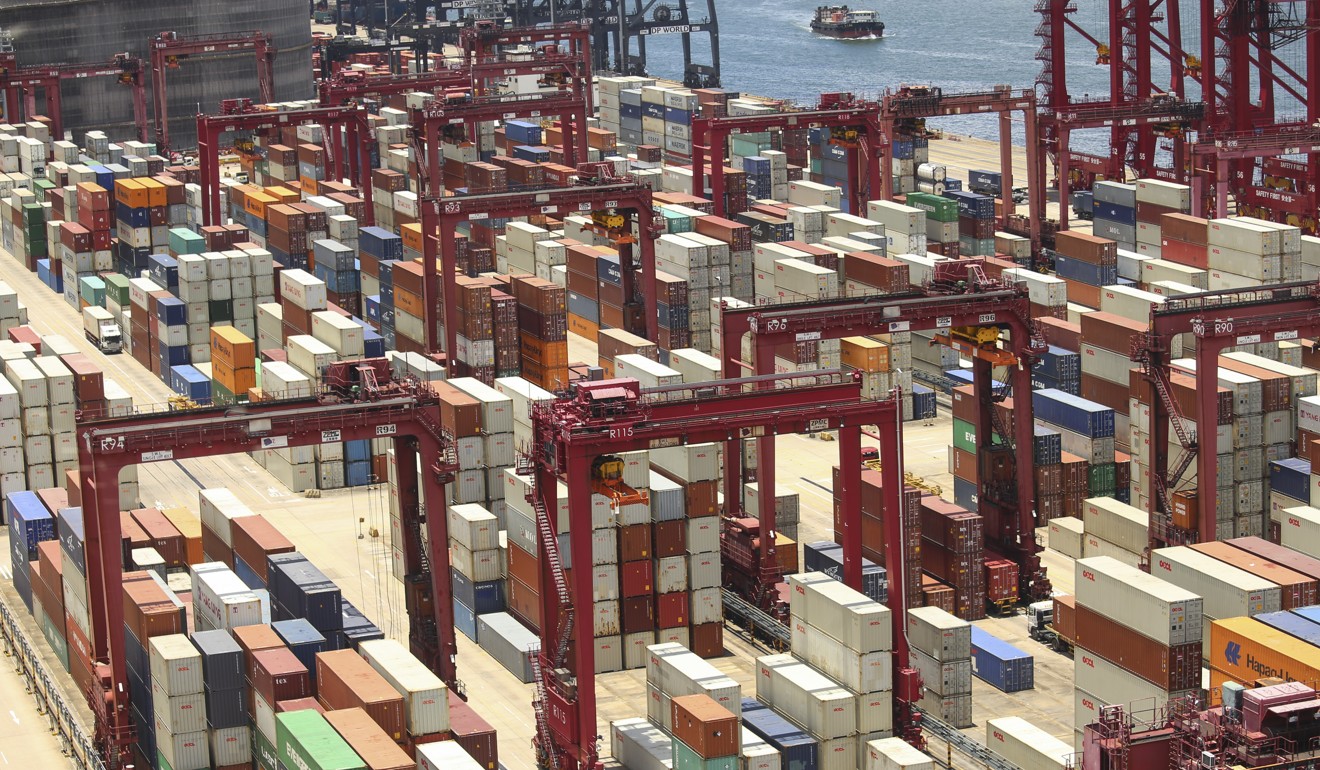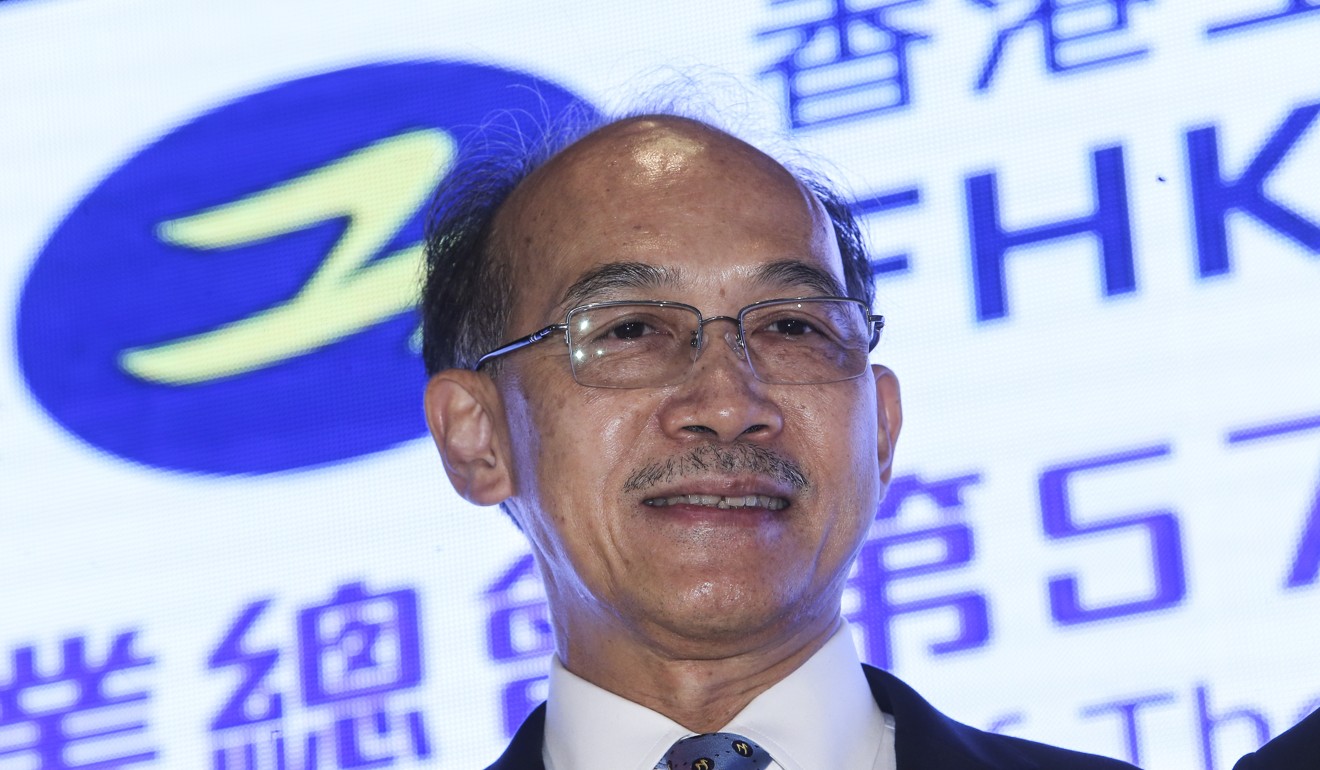
US-China trade war: how will Hong Kong companies be affected as tariffs imposed on US$34 billion worth of Chinese goods?
Commerce secretary Edward Yau says city will be ‘first to bear the brunt’ of tit-for-tat dispute
As the first shots of the Sino-US trade war were fired on Friday, Hong Kong companies were preparing to get caught in the crossfire.
Yau said businesses were unable to shift their sourcing or markets overnight, which meant companies would either have to swallow extra costs and have their profitability eroded, or pass them on to consumers through higher prices.
“Hong Kong, as a free economy, is more exposed to trade disputes than many other economies,” Yau said. “Retaliatory moves, which turn a blind eye to a trade settlement mechanism, will only exacerbate the trade disputes,” he said.
The Hong Kong government said about 17 per cent – or HK$60 billion (US$7.6 billion) worth – of Chinese exports in question passed through the city to the US, and about 9 per cent – HK$6 billion – of US exports came through on the way to mainland China. The exports in question accounted for 1.4 per cent of Hong Kong’s overall trade.
The total affected trade in Hong Kong accounted for about 0.5 per cent of GDP last year, and the government would “closely watch” the development and gauge its impact, Yau said.
Hong Kong companies which operate across the border and in the re-export and transshipment business stood to be the biggest casualties.
Hong Kong-based manufacturer Jimmy Kwok Chun-wah said his factory across the border in Shenzhen would face higher production costs as a result of China’s decision to raise tariffs on certain raw materials.

Kwok, managing director of Rambo Chemicals, which supplies chemicals for metal plating, said the company was unlikely to be able to pass the extra costs on to customers.
“There will be an increase in costs after taking into account the new tariffs and the existing tax rebates on finished goods,” Kwok said.
“In the short term, we have no choice but to swallow it. It appears the trade frictions will drag on for some time, so we are looking for alternatives.”
Agricultural products and food such as soybeans and frozen meat will also be affected by the dispute.
The world’s largest soybean buyer, China is expected to cancel most of the outstanding 1.1 million tonnes it had committed to buy from the US up to August 31.

Hong Kong firm Vitasoy, which produces a signature soy milk product, would adopt “different procurement strategies to mitigate cost pressure,” according to its spokeswoman.
The company would diversify its source of raw materials, she said.
“We will improve productivity and operational efficiency to lower our average production costs,” she said.
While Vitasoy factories in mainland China and Australia would source soybeans locally, the Hong Kong headquarters would get the high-protein legume from Canada.
JP Morgan Asset Management chief market strategist Tai Hui said consumers could lose out by paying higher prices.
“Global supply chains are now highly specialised and delicate. Disruption in one part of the production could cause a breakdown in the whole process,” he said.
“A car without seat belts won’t be allowed on the road. No mobile phone will work without its battery-charging port.”
Wilson Chong Sze-kit, senior economist at the Hong Kong General Chamber of Commerce, said the trade spat together with looming interest rate rises would being uncertainty to Hong Kong's economic outlook.
He said the trade war’s eruption “effectively means China-US trade relations have worsened and I don't see any prospect of a turnaround in the near term.”
"If the trade war persists in the second half of the year, there is a chance Hong Kong's economy could grow at the lower end of 3 to 4 per cent," he added.
The Hong Kong government estimated economic growth would be anywhere between 3 and 4 per cent this year, after growth of 3.8 per cent last year.

